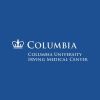Protecting Your Heart: Essential Prevention Strategies for All Ages
- 1. Introduction to Heart Health
- 2. The Importance of Heart Health at Every Age
- 3. Preventing Heart Disease Through Lifestyle Changes
- 4. Understanding Risk Factors for Heart Disease
- 5. Heart Health Tips for Children and Teens
- 6. Heart Health Tips for Adults and Seniors
- 7. Where to Find Heart Health Products and Services
1. Introduction to Heart Health
Your heart is one of the most vital organs in your body, pumping blood to provide oxygen and nutrients to every cell. Protecting your heart from disease is essential for maintaining overall health and well-being. Unfortunately, heart disease is a leading cause of death worldwide, but the good news is that many of the risk factors can be prevented or managed with proper lifestyle choices. In this article, we will explore essential prevention strategies for all ages to help protect your heart and keep it healthy for years to come.

2. The Importance of Heart Health at Every Age
Heart health is important at every stage of life. While many people focus on heart disease prevention later in life, the truth is that heart health begins early. Children and young adults can benefit from developing healthy habits that will protect them as they age. For older adults, the focus shifts toward managing existing conditions and continuing to prioritize cardiovascular health through lifestyle choices and medical care.
Atlanta Heart Specialists
atlanta heart specialists
4375 Johns Creek Pkwy #350, Suwanee, GA 30024, USA

2.1 Heart Health in Childhood and Adolescence
It’s never too early to start caring for your heart. Healthy habits like regular physical activity, a balanced diet, and avoiding smoking can set the foundation for lifelong heart health. Encouraging children to stay active and develop healthy eating habits will reduce their risk of heart disease later in life.
2.2 Heart Health in Adulthood
As we enter adulthood, it’s crucial to continue prioritizing heart health. The risk of heart disease increases with age, but maintaining a healthy weight, managing stress, eating well, and staying physically active can significantly reduce the risk. Regular health screenings to check blood pressure, cholesterol, and blood sugar levels are also important for early detection of potential issues.
2.3 Heart Health in Seniors
For seniors, heart disease prevention shifts toward managing existing conditions and maintaining an active lifestyle. With proper care, seniors can continue to lead an active, heart-healthy life well into their later years. It’s important to work closely with healthcare providers to manage heart disease risk factors, such as hypertension and diabetes.
3. Preventing Heart Disease Through Lifestyle Changes
One of the most effective ways to protect your heart is by adopting heart-healthy lifestyle changes. A healthy diet, regular physical activity, and managing stress are essential to maintaining cardiovascular health.
3.1 Healthy Diet
A heart-healthy diet is rich in fruits, vegetables, whole grains, and lean proteins. Limiting the intake of saturated fats, trans fats, and processed foods helps to reduce cholesterol and blood pressure, two key contributors to heart disease. Foods rich in omega-3 fatty acids, such as salmon, walnuts, and flaxseeds, can help protect the heart.
3.2 Regular Exercise
Physical activity is one of the best ways to strengthen the heart. Aim for at least 30 minutes of moderate exercise, such as walking, cycling, or swimming, most days of the week. Regular exercise helps maintain a healthy weight, reduces blood pressure, and improves cholesterol levels.
3.3 Stress Management
Chronic stress is a major contributor to heart disease. Stress management techniques such as yoga, meditation, deep breathing, and mindfulness can help lower stress levels and protect your heart. Taking time for relaxation and self-care is an essential part of heart health.
4. Understanding Risk Factors for Heart Disease
There are several risk factors that contribute to the development of heart disease. While some risk factors, such as age and family history, are beyond your control, many others can be managed through lifestyle changes.
4.1 High Blood Pressure
High blood pressure (hypertension) is one of the leading risk factors for heart disease. Regularly monitoring your blood pressure and taking steps to lower it—such as reducing salt intake, exercising, and managing stress—can reduce your risk.
4.2 High Cholesterol
High cholesterol levels can lead to plaque buildup in the arteries, increasing the risk of heart attack and stroke. Eating a heart-healthy diet, exercising, and taking medications if necessary can help control cholesterol levels.
4.3 Smoking
Smoking damages blood vessels, increases blood pressure, and lowers oxygen levels in the blood, all of which contribute to heart disease. Quitting smoking is one of the best decisions you can make for your heart.
5. Heart Health Tips for Children and Teens
Heart disease prevention starts early in life. Teaching children and teens about healthy habits can set the stage for a lifetime of good heart health. Here are some tips:
5.1 Encourage Physical Activity
Encourage children to engage in physical activities they enjoy, whether it’s playing sports, dancing, or biking. Physical activity not only promotes heart health but also helps with weight management and overall well-being.
5.2 Healthy Eating Habits
Introduce children to healthy foods early on, such as fruits, vegetables, and whole grains. Encourage them to eat a variety of foods and limit their intake of sugary snacks and beverages.
5.3 Educate About Stress Management
Teach teens how to manage stress through relaxation techniques, such as deep breathing or taking time for hobbies. Learning how to cope with stress can help prevent the long-term effects it may have on heart health.
6. Heart Health Tips for Adults and Seniors
As we age, heart health becomes even more important. Here are some tips for adults and seniors to maintain cardiovascular health:
6.1 Stay Active
Continue engaging in regular physical activity, such as walking, swimming, or cycling. For seniors, low-impact exercises are ideal for maintaining joint health while strengthening the heart.
6.2 Regular Health Screenings
Regular checkups with your healthcare provider are essential for monitoring heart health. Screenings for blood pressure, cholesterol, and blood sugar levels help detect potential issues early on.
6.3 Focus on Diet
As we age, our metabolism slows, and it becomes even more important to focus on eating nutrient-dense, heart-healthy foods. Opt for foods that support heart health, such as leafy greens, nuts, and oily fish.
7. Where to Find Heart Health Products and Services
If you're looking for resources to help maintain your heart health, [HeartCare Hub] offers a wide range of heart-healthy products, from dietary supplements to fitness trackers. Visit [HeartCare Hub] for expert advice, product recommendations, and services that support heart health at every age.
Protecting your heart is one of the most important investments you can make for your long-term health. By adopting a heart-healthy lifestyle, understanding risk factors, and seeking regular medical care, you can reduce your risk of heart disease and live a long, healthy life.






















Deborah Heart and Lung Center
deborah heart and lung center
200 Trenton Rd, Browns Mills, NJ 08015, USA